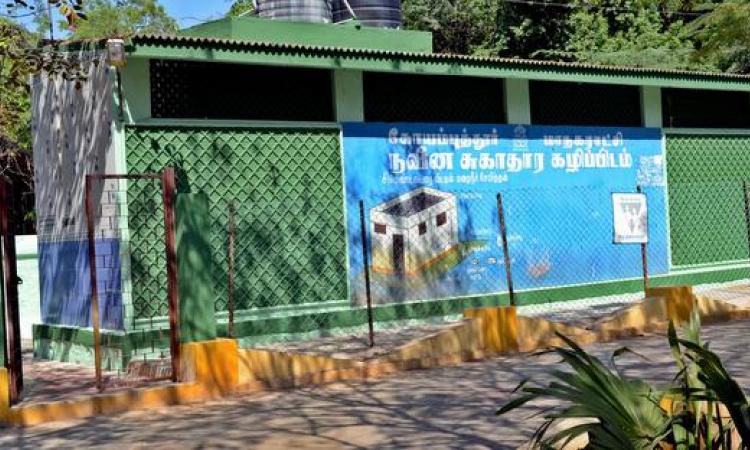
Coimbatore corporation to set up 'smiley terminals' outside public toilets on a trial basis
In a bid to improve the cleanliness and usability of public conveniences, the Coimbatore corporation has decided to set up ‘smiley terminals’ outside 30 public toilets on a trial basis to record people’s feedback. Users can rate their experiences as good, bad or ugly and the responses will be recorded and transmitted to the concerned officials. If successful, the system will be put in place in all public toilets across the city. Officials are in the process of mapping all public conveniences across the city and have been encouraging people to use the Swachhta app.
Public toilets remain inadequate for Delhi's burgeoning population
Despite the inauguration of hundreds of toilets across the national capital since the launch of the Swachh Bharat Mission, the density of public toilets continue to be very weak and have proved inadequate for the city’s burgeoning population. The ones that are available are rendered useless due to poor maintenance. The government’s plan to shame people found urinating and defecating in the open seems rather hollow as most of the city’s residents, as well as visitors, have very little in terms of accessible public convenience facilities.
AP plans to introduce mechanical sanitation and solid waste management system in urban local bodies
Andhra Pradesh’s municipal administration and urban development department is considering the introduction of mechanical sanitation and solid waste management systems across all urban local bodies in the state. Mechanical sweeping machines are expected to be procured at a cost of Rs 28.5 crore for all 12 urban local bodies of the state. In addition, vehicle-mounted compactors will also be purchased to collect and dump waste in landfills and dump yards. Swachh Bharat Mission funds are expected to be used for the entire exercise. A technical evaluation committee has also been put in place to speed up the process.
Source segregation must be strictly implemented to help India deal with its solid waste woes
Despite several laws and rules in place, the country’s solid waste management system is in shambles. India’s urban centres produce close to 62 million tonnes of solid waste every year. This is expected to touch 165 million tonnes by 2030. The idea of waste management continues to revolve around the collection and dumping with little to no emphasis on source segregation of garbage. Unless source segregation of waste is given the importance it deserves, managing the mounting garbage crisis would be close to impossible.
Swachh Bharat Mission's progress over 2016
Three states--Sikkim, Himachal Pradesh and Kerala--were declared open defecation free in 2016. The government data suggests that close to 58 percent of households across the 1.3 lakh villages in the country have toilets. Mysuru was adjudged the cleanest city in the country followed by Chandigarh and Tiruchirapalli. Dhanbad, Asansol and Itanagar were among the dirtiest. By the end of 2016, the Indian Railways had installed close to 37,000 biotoilets across hundreds of passenger coaches plying across the country. Apart from institutional activity, citizen groups and resident associations across the country also came forward to organise "cleanathons" and swachh makeovers to tidy up their cities and neighbourhoods.
This is a compilation of all important sanitation related news published between December 24 and 30, 2016.
Lead image courtesy: NYOOZ